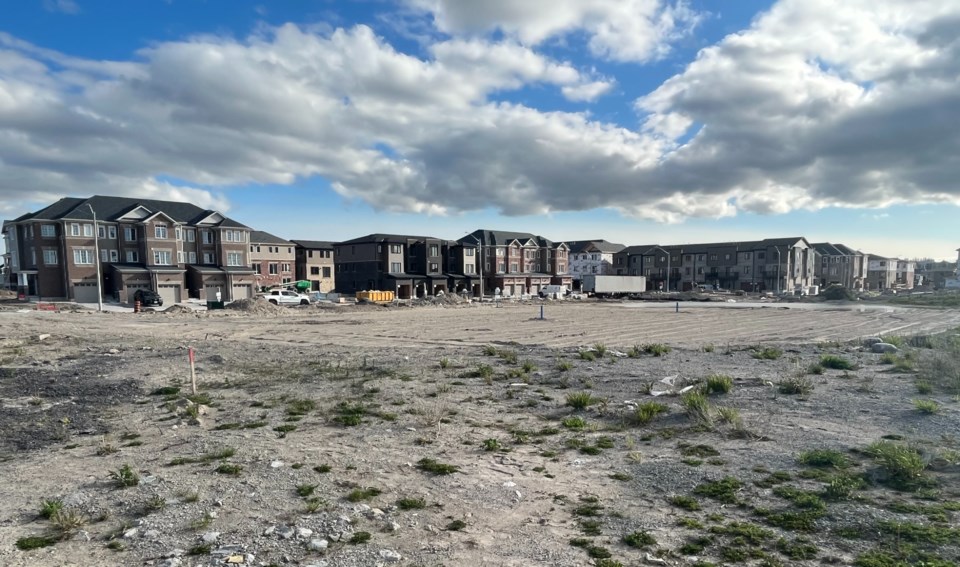BarrieToday welcomes letters to the editor at [email protected]. Please include your full name, daytime phone number and address (for verification of authorship, not publication). The following letter is from local resident Gary Machan, who is a member of the Simcoe County Greenbelt Coalition.
When I first moved to Barrie in 1985, much as it liked to think of itself as being in the big leagues, it was for all intents and purposes a town of 40,000 people.
In fact, my wife’s grandfather, who worked in Allandale, regarded themselves as separate to Barrie. Actually made quite a point of it. Same with Stroud in Innisfil. And everything west of highway 400 was mostly covered in trees, just as the south end was once prime agricultural land composed of rich, loamy soil.
Something else I vividly recall is how Barrie was once regarded as the snow belt of Ontario. And true to its reputation, there was a lot of snow back in those days.
The winters were consistently colder. Local tennis courts were flooded and served double duty as hockey rinks frequented by youngsters from December to March.
There was even an old jalopy that was put on the ice of Kempenfelt Bay as a fundraiser for the YMCA where residents would cast bets on the date it would fall through.
Another salient point is the extent to which Barrie was envied for its strong and vibrant manufacturing base. This, in turn, meant Barrie had the perfect mix of industrial, commercial and residential tax revenues. Not only did this provide thousands of local, well-paying jobs, it meant that property taxes were kept low. Most homeowners had property taxes that were a couple of hundred dollars per year, if that.
Compare this to now, and what one sees is Mississauga of the north — a mass of homes inhabited largely by commuters working outside of the 705 area code. Barrie didn’t so much grow up as it spread out like spilt milk over field and forest.
This, in turn, increased residential taxes since sprawl was, and continues to be, far more expensive for existing homeowners due to all the demands for infrastructure and provision of soft services that comes along with it.
And yet, the one big change that disturbs me the most is the extremes in our weather. Here I must confess that when I first learned about climate change, I didn’t think I would see it play out in real time.
Not in my lifetime; least of all in Barrie. And yet, as I put pen to paper, I know the haze I am seeing outside of my office window is the result of forest fires from as far away as Alberta. In early June of all months. Not exactly the dog days of summer.
Much as it would be nice if we could undo the way that Barrie grew, the hard truth is it is here to stay. This should not, however, preclude us from speaking out against Ford’s ‘Sprawl Is Us’ legislation (tabled as ERO 019-6813 as a means to avoid attention). Most likely, since everyone knows it is completely unnecessary.
Bear in mind, Ford’s own task force on housing reported there were 1.1 million existing units approved for development last year, 19,000 of which are located in Barrie!
As an alternative, dare we ask conservatives to revisit the Smart Growth panels established by one of their own, former premier Mike Harris. Not only would this stop the escalation of property taxes for homeowners who will bear the brunt of Ford’s ‘Sprawl is Us’ agenda, it would help us to do our part to protect the environment, preserve prime agricultural land and combat climate change in a meaningful way.
That failing, I suspect nothing less than a property tax revolt might give Ford cause to pause.
Gary Machan
Oro-Medonte Township



